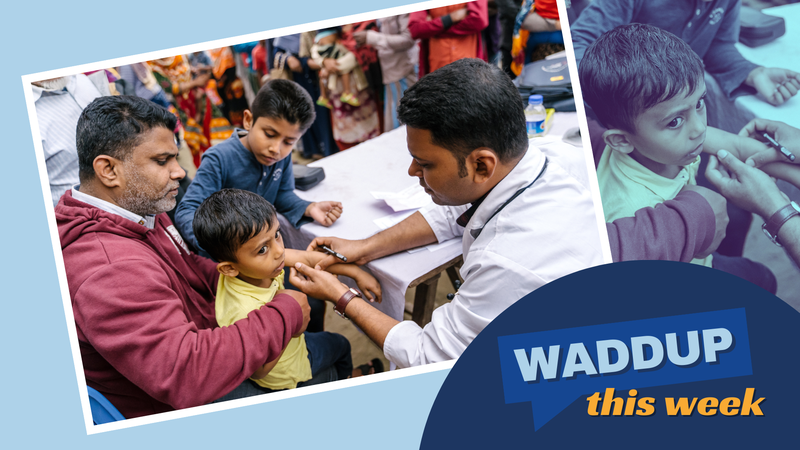'A heartfelt connection'
Peter Waddup, CEO - The Leprosy Mission Great Britain
It takes a single connection to confidently begin a journey of health and transformation. I’ve seen this hundreds of times with people affected by leprosy. And now I've experienced it myself first-hand.
I think nearly all of us have been guilty of taking our health for granted at one stage or other in our lives. I know I certainly have. Life is so busy. We somehow assume our bodies can keep up with responsibilities, deadlines and schedules.
It's not until we are laid low with an illness or injury that we are reminded we are not invincible but merely human. That we are all vulnerable and need a helping hand to get back on our feet sometimes. This is not a problem confined to the developed world. I have spoken to people affected by leprosy who never thought the disease would affect them. Or considered a disability would stop them working and providing for their family.
Three weeks ago I had a scary night where I had strong heart palpitations for six hours. Although I didn't think I was having a heart attack, I was very worried. So the next day I spent 12 hours in Accident & Emergency at Peterborough City Hospital. It is always humbling sitting in a hospital waiting room. Our busyness has no option but to be pared back. And thoughts of our own mortality can no longer be pushed aside.
Inside the workings of a bustling 24/7 hospital, I felt like a very small cog in an enormous machine. I was signposted from one waiting room to another where I had test after test. It felt bewildering yet I was so very thankful to one particular nurse who went above and beyond. She talked me through everything I needed to have done that day, vastly reducing my anxiety. It was clearly more than a job for her and I had every confidence that she was managing my case.
Our NHS is incredible and we are so blessed to have the healthcare we need free at the point of use. But there is no denying that waiting lists are long. I do feel for the 6.33 million people the British Medical Association estimates to be waiting for treatment. It is daunting not knowing when you are going to be seen by a specialist and get the care you need.
I am now on a waiting list to see a specialist. Another name on a seemingly never-ending list. Yet the experience of the kind nurse that day has given me complete confidence in my treatment.
I was booked to fly to Delhi on Monday to meet with the leaders of Leprosy Mission countries around the globe. But unfortunately the doctors have put a stop to these plans. They have told me that flying is not wise. I am so disappointed to miss a special time of sharing knowledge and experience in person. Yet a health scare is a very grounding experience. As well as feeling thankful to be alive, it has reminded me of the importance of our work. To reach the millions of people living with leprosy who so need specialist healthcare.
It takes a single connection with one of our hospital staff or outreach workers to start a journey of health and restoration. I am so thankful for people like Dr Albert Pobon who I met in Dhaka in Bangladesh. When Dr Albert was a medical student, he visited a Leprosy Mission hospital. He was so moved by the effects of the disease. He told me it really upset him when he heard patients talk about leprosy being a punishment for misdeeds in a former life.
Dr Albert and another doctor were running a pop-up skin camp. Skin camps are an ideal way of encouraging those who suspect they may have leprosy to come forward. Because of the prejudice surrounding leprosy, many people are reluctant to seek treatment. That is why my colleagues look for skin problems, an early sign of leprosy, to gently encourage people. As well as diagnosing and treating leprosy, they also treat skin conditions like eczema.
Like the nurse who helped me in A&E, an initial encounter with Dr Albert has restored so many lives and hopes. He has made them feel like a person and not simply a number. He has given them every confidence that he will go the extra mile for them. Through their connection with Dr Albert, they know their lives are important and that they can begin a journey of restoration.

Dr Albert Pobon checks people for the early signs of leprosy at a pop-up skin camp in Dhaka, the capital of Bangladesh